Indian tech startups are setting a perfect example of building resilience amidst the crisis. Even though the havoc wreaked by the COVID-19 pandemic was unprecedented and resulting in severe pain, it is also true that the outbreak profoundly influenced indigenous innovations, new tech startup ideas, and digital transformation roadmaps in India. (See: Digital transformation deals put IT sector back on track)
When businesses were scrambling to find the best ways to deal with the crisis, Indian tech startups emerged as a force to reckon with. According to a recent Nasscom report, India added a whopping 1600 plus tech startups in 2020 and has become the third-largest tech startup ecosystem in the world after the US and China.
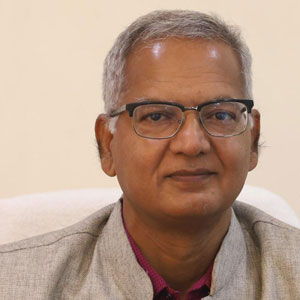 Ravindra Kumar, President, IIT Delhi
Ravindra Kumar, President, IIT Delhi
Alumni Association
“Fostering entrepreneurship and nurturing tech startups has always been a key priority area for IIT Delhi. We utilize technologies such as artificial intelligence (AI),
blockchain, and cloud to get all our students and alumni together and build a global outreach.”
 Rajesh Kumar, Founder CEO of Sabzibhazi.com
Rajesh Kumar, Founder CEO of Sabzibhazi.com
“The last few months have been good for our business. As people moved to digital channels for their grocery shopping needs, we got thousands of new customer registrations, and there is substantial revenue flowing in now. We are planning to expand our operations and upgrade our app interface for better positioning.”
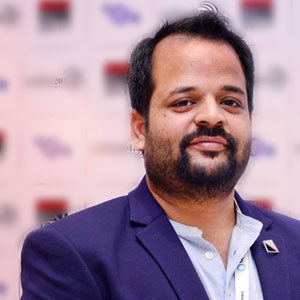 Akhilesh Shukla, Co-Founder and Editor TechShots.
Akhilesh Shukla, Co-Founder and Editor TechShots.
“We saw a significant gap in the Indian news industry, lacking a common tech-news platform for enterprise decision-makers. And that’s how the idea of Techshots was born. Leveraging technology, we are delivering technology news and enabling technology decision-makers to make informed decisions.”
The number of unicorns (those who have a valuation of over $1 billion) is also growing steadily in India. In 2020 alone, 11 startups from India joined the unicorn club, which boasts of Paytm, Ola, Zomato, Cars 24, and 34 others.
The above figures are intriguing and contrary to the early fears raised by several industry observers. The Indian startup ecosystem was projected for a steep decline by many in March 2020 due to the Covid-induced bedbound economic environment. Technology interventions and innovative ideas played a pivotal role in resuscitating the growth path. (See: How is digital transformation shaping the new future?)
Turning the crisis into opportunity
When millions of citizens were confined to their homes, the rise of digital technologies created fresh opportunities. These technologies enabled people to do things efficiently and in a cost-effective way. Had it not been for the role of IT and tech startups in India, the impact of the crisis could have been more upsetting!
Amidst the widespread uncertainty and social distancing measures, the dependencies on digital solutions grew enormously. Whether it is healthcare consultation, retail, astrology, education, grocery supply, or entertainment, technology kept the economy running and helped us adapt to the new normal.
If Indian tech startups such as Byju, UpGrad, and Unacademy excelled in transforming the education and learning delivery, location surveillance apps such as Unmaze, Aarogya Setu, and Sahyog kept the COVID-19 virus in check. India also witnessed a massive surge in fintech and health startups as the demand for their services, such as contactless payments and telemedicine, grew much faster.
News aggregators such as InShorts, Dailyhunt, and TechShots have gained significant traction as people continue to switch to their personal mobile devices for real-time information and news.
Some of the new habits that people learned during the pandemic are likely to remain permanent, and this compelled many entrepreneurs to launch niche and specialized services. “Media consumption habits are changing quickly. Most consumers now prefer to receive their daily dose of news bulletin digitally in a crisp format. During the COVID-19 crisis, this demand reached a record level. We saw a significant gap in the Indian news industry, lacking a common tech-news platform for enterprise decision-makers. And that’s how the idea of TechShots was born. Leveraging technology, we are delivering technology news and enabling technology decision-makers to make informed decisions,” said Akhilesh Shukla, Co-Founder and Editor TechShots.
With quarantine and lockdown rules forced consumers to stay indoors, online grocery delivery demand witnessed a massive rise throughout 2020. Along with established online grocery suppliers such as Big Basket, Grofers, and Amazon, agritech startups such as Otipy, Sabzibhazi, Freshokartz, Agrowave, among others, also made their presence felt.
“I started Sabzibhazi in 2019. When I first launched this company with my meager savings in 2019, it didn’t do well. The idea was to provide the freshest produce at a reasonable price using a new-age tech platform. Even though we did much research, but there were still no customers. It was a tough time. We didn’t go for fundraising as we didn’t want to be answerable to anyone. Moreover, we were not sure if we would get that much attention from venture capitalists,” says Rajesh Kumar Pandit, Founder CEO of Sabzibhazi.com, a South Delhi-based digital farm-to kitchen service provider.
Things changed quickly for Rajesh when India announced nationwide lockdowns. Many established players failed to meet the unprecedented surge in demand for online fresh produce. “The last few months have been good for our business. As people moved to digital channels for their grocery shopping needs, we got thousands of new customer registrations, and there is substantial revenue flowing in now. We are planning to expand our operations and upgrade our app interface,” an enthusiastic Kumar adds.
In the healthcare space, startups like Pharmeasy, CureFit, and EyeNetra attracted massive investors’ interest.
Innovative ideas fueling startups
Besides the above, innovative virtual event platforms Airmeet also garnered significant attention from enterprises. Businesses took their services for hosting various internal workshops, panel discussions, and customer events in a setting where physical events are restricted.
There are also pure-play data analytics firms such as Mu Sigma, which are growing exponentially.
The tech startup culture in India is equally supported by the government and premier institutes like IIT. The Indian government has taken several initiatives recently to help the local startup ecosystem grow. Under the AatmaNirbhar Bharat vision, the government has eased regulations, announced tax exemptions, and set up a Rs 10,000 crore fund exclusively for startups.
“Fostering entrepreneurship and nurturing tech startups has always been a key priority area for IIT Delhi. We utilize technologies such as artificial intelligence (AI), blockchain, and cloud to get all our students and alumni together and build a global outreach,” said Ravindra Kumar, President, IIT Delhi Alumni Association, in an earlier interaction with Better World. (See: IIT Delhi can help develop an Indian equivalent of Google or Facebook).
The year also saw spectacular ideas such as anti-viral t-shirts and COVID-19 protective lotions unveiled by E-TEX and Clensta, two startups incubated at IIT Delhi.
Another startup that caught our attention was ATAI Labs; an applied AI company launched recently. The startup provides AI-based digital transformation solutions for the supply chain and logistics industry, which bring the data center capabilities closer to the source of data and enable AI inferencing, decision making, and analytics at the EDGE. The 70-employee young Indian startup offers innovative solutions to augment maritime, retail, locomotive, and surveillance capabilities. (See: AI is a must now to speed up digital transformation)
Factors.ai is also an AI-based startup that focuses on providing marketing analytics for entrepreneurs and small-medium businesses. The startup was chosen as one of the 20 firms for the fourth cohort of the Google for Startups (GFS) Accelerator program in India last year.
An equally exciting tech-startup, The Water App, was launched to solve the water crisis in Hyderabad. The company leverages advanced technologies and intelligence to monitor supply chain management of water and deliver clean water at the doorstep.
Final thoughts
Before the pandemic, many enterprises were reluctant to go online entirely. But things changed quite dramatically. Across all sectors, there was no option but to accelerate the digital transformation.
Indian tech startups and IT companies proved that integrating innovations with adaptability models led to new pathways and behavioral models, bringing together enormous resilience and resolve.
At Better World, we believe that this is just the beginning. Indian tech startups not only took risks and found new innovative models but were also instrumental in adding thousands of new jobs at a time when people were losing hopes. In 2021, according to Nasscom, the Indian IT industry (along with the tech startups) is expected to add over 1,38,000 new hires, taking the total employee base in this sector to 4.47 million.
By leveraging technologies such as artificial intelligence, analytics, and cloud-based collaboration tools, these young tech companies will continue to bring the best of the ideas and tools to revive the economy and develop life-enabling solutions.




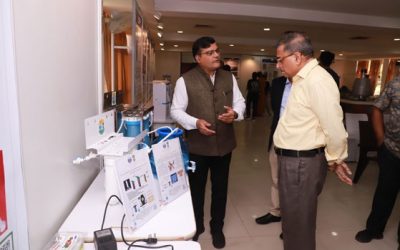

 The exhibition is covering technologies developed by the Bhabha Atomic Research Centre (BARC), Raja Ramanna Centre for Advance Technology, Indore and other Units of Department of Atomic Energy (DAE), which are useful for the common man in day-to-day life, e.g., in the field of health, agriculture, water, food security and environment, said a PIB release.
The exhibition is covering technologies developed by the Bhabha Atomic Research Centre (BARC), Raja Ramanna Centre for Advance Technology, Indore and other Units of Department of Atomic Energy (DAE), which are useful for the common man in day-to-day life, e.g., in the field of health, agriculture, water, food security and environment, said a PIB release.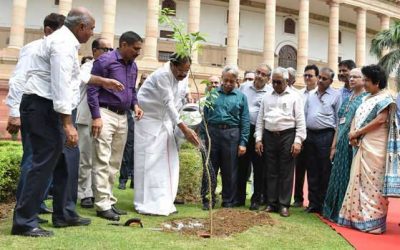
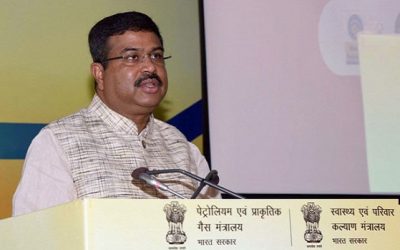


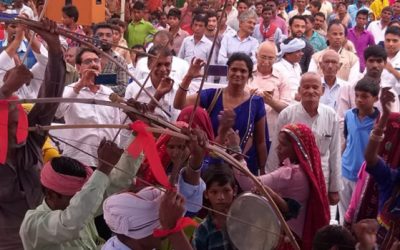



0 Comments